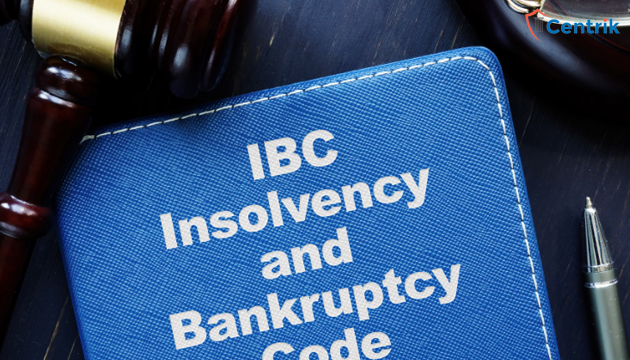
Status as on- 13/04/2023
The National Company Law Tribunal (NCLT) is a quasi-judicial body in India that has been set up under the Insolvency and Bankruptcy Code, 2016 (IBC). The NCLT has jurisdiction over corporate insolvency, among other matters.
There is no specific threshold limit for the NCLT Delhi under the IBC 2016. The IBC provides that a financial creditor, operational creditor, or the corporate debtor itself can initiate the insolvency resolution process with the NCLT for any default amount above Rs. 1 lakh. The NCLT can admit or reject the insolvency application based on certain criteria, such as the existence of a default, the viability of the corporate debtor, and other factors.
However, as per the new judgment, there is a threshold limit for initiating the corporate insolvency resolution process which is as follows:
- Financial Creditors: A financial creditor can initiate the insolvency resolution process against a corporate debtor if the default amount is at least INR 1 crore.
- Operational Creditors: An operational creditor can initiate the insolvency resolution process against a corporate debtor if the default amount is at least INR 1 crore.
- Corporate Debtor: A corporate debtor can initiate the insolvency resolution process against itself if the default amount is at least INR 1 crore.
It is important to note that the default amount must be due and payable, and there must be no dispute regarding the default amount. If the default amount is less than the threshold limit, the creditor or debtor may need to explore other options for recovering the outstanding amount.
Nevermore, in the case where the pleas were filed on or before 24.03.2022, the authority observed that:
Case-
Metal’s & Metal Electric Pvt. Ltd. Vs. Goms Electricals Pvt. Ltd.
Facts of the Case–
In the instant case, the applicant had sold and supplied the goods as an operational creditor to the corporate debtor and the corporate debtor had received, accepted and utilized those goods. The corporate debtor had never raised any dispute as to the quality or quantity of the material supplied.
The operational creditor had issued a demand notice dated 10-10-2020 u/s 8 of the IBC to the corporate debtor. On the corporate debtor’s failure to pay, the operational creditor filed an application u/s 9 of the IBC.
NCLT Held-
The NCLT observed that the amount claimed was in a sum of Rs. 17,91,112 and on and from 24-3-2020 the pecuniary jurisdiction for entertaining the petition under the provisions of sections 7, 9, and 10 stands in relation to threshold limits increased from Rs. 1,00,000 to Rs. 1,00,00,000.
The NCLT held that the petition was filed on 12-3-2021 i.e much after 24-3-2020 being the date of increase of the threshold limit and thus, in the circumstances, it had no jurisdiction to entertain the petition and was constrained to dismiss the same for ‘lack of pecuniary jurisdiction’.
Thereafter, an appeal was made to the National Company Law Appellate Tribunal (NCLAT) against the order passed by the NCLT.
The operational creditor contended that the amount in default was Rs. 17,91,112 and the correct interpretation of the Notification dated 24-3-2020 was that in case of ‘default’ that takes place on or after 24-3-2020, the threshold limit would be Rs. 1,00,00,000. As such, if a ‘default’ had been committed by a ‘corporate debtor’ before the issuance of the Notification i.e., prior to 24-3-2020, then, for the purpose of initiation of CIRP u/s 9 of the IBC the threshold limit would be considered as Rs. 1 lakh.
The NCLAT observed that section 4 of the IBC specifies the minimum threshold limit of Rs. 1,00,00,000 for the default and in fact, the Central Government had raised the limit from Rs. 1,00,000 to Rs. 1,00,00,000 as per Notification No. S.O 1205 (E), dated 24-3-2020.
The NCLAT, further observed that the date of initiation of CIRP shall be the date on which an application was made. To put it precisely, ‘the date of default’ is not to come into ‘operative play’ and the same ought not to be taken into account for anything but computing the period of limitation.
The NCLAT held that the threshold limit of Rs. 1 crore specified in Notification No. 1205(E), dated 24-3-2020 will be applicable for applications filed u/s 7 or 9 on or after 24-3-2020.
Further, the NCLAT held that where application u/s 9 of the IBC was filed on 12-3-2021 involving debt lower than the threshold limit, the said application was not maintainable because of lack of pecuniary jurisdiction.
Thus, the impugned order passed by the NCLT dismissing said section 9 application was free from legal infirmities.
Disclaimer– The above article is based on the personal interpretation of related laws, which may differ from person to person. The readers are expected to take expert opinion before relying on this article. For more clarification, the readers can be expected at support@centrik.in




 join For Updates
join For Updates